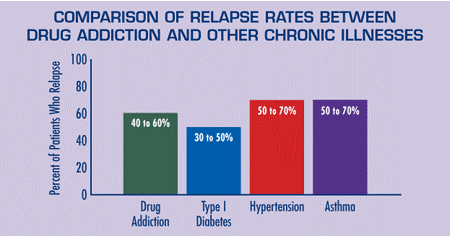It’s hard to know how to help a loved one with addiction.
- Treat them the same way you would if they were battling any other life-threatening medical problem, because that’s what addiction is- a chronic illness without a cure. Getting addicted isn’t a choice. The drug is all-consuming and totally changes the person it takes hold of- and the people they love. Addiction is different than other diseases because its symptoms can include lying and crime. While addiction is steeped with a different stigma than other chronic diseases like diabetes, cancer, or arthritis, addiction patients deserve the same
 respect and support that other patients get. Do your research about you loved one’s addiction the same way you would if they had some other medical diagnosis.
respect and support that other patients get. Do your research about you loved one’s addiction the same way you would if they had some other medical diagnosis. - Take care of yourself. Your loved one’s probably takes a toll on your own well being. Seek out support for yourself. Friends and family that haven’t yet been affected by addiction may not be able to empathize with what you’re going through. Look for a therapist and local or online support groups that can offer guidance and understanding. You’ll be better equipped to help you loved one if you first take care of yourself.
- Be gentle. Aggressive interventions and ultimatums most likely won’t help your loved one. Dr. Mark Willenbring, the former director of treatment research at the National Institute on Alcohol Abuse and Alcoholism says that interventions “are almost always destructive.” Compassion and support are far more effective than tough love. A study from the American Psychological Association showed that community reinforcement and family training programs, that emphasize positive motivation and limiting conflict, were more than twice as effective as 12 step programs at getting drug abusers to enter treatment. Support doesn’t mean enabling.
- Relapse isn’t failure. Relapse may be likely but it’s no reason to give up hope. Relapse rates are comparable to other chronic illnesses. A relapse is a sign that some adjustment in treatment is in order, and your loved one can use all they learned in recovery and relapse as wisdom going forward. However, an opioid relapse is incredibly dangerous, so you should learn how to respond to an emergency with the overdose antidote naloxone and have it on hand just in case. Find out where to get trained in and obtain naloxone here (http://getnaloxonenow.org/).
If you or a loved one is living with an opioid addiction, please call us at (747) 998-0394 or sign up online to see if you qualify for our currently enrolling research study!

